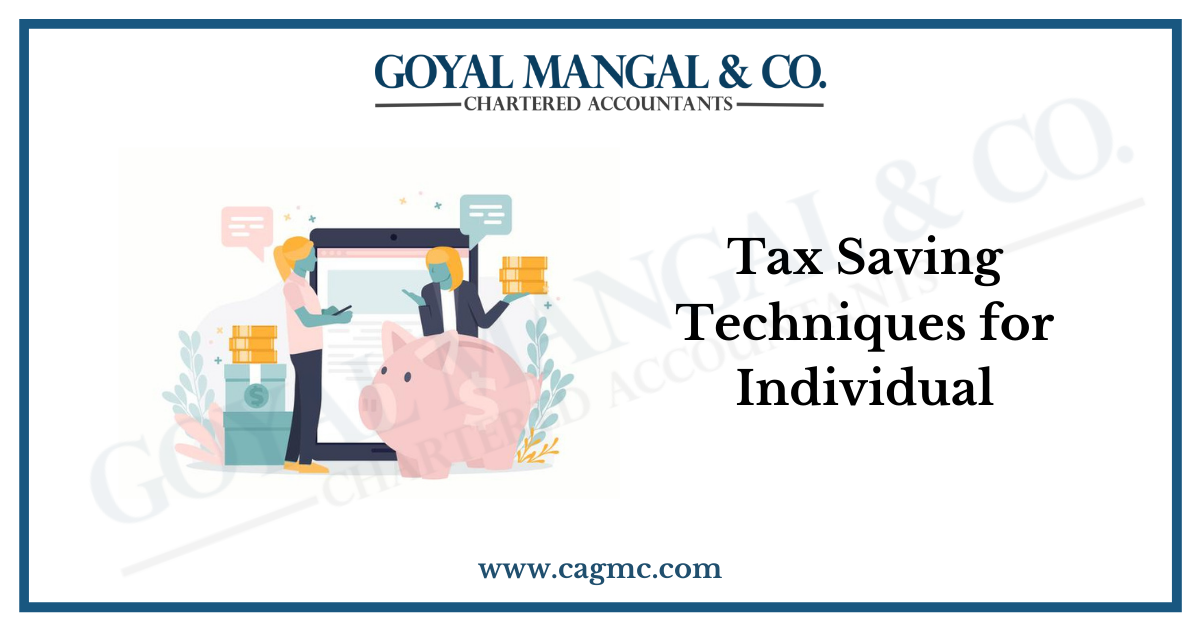To earn the most is the dream of every person but the only thing which everyone wants to avoid is TAXES, which are levied according to the norms of running acts in the current period.
Let’s talk about the INCOME TAX ACT, 1961, which is currently applicable in our country, there are a lot of ways using which anyone can save itself from heavy tax payments.
| Table of Content |
Some of them are discussed below:
- Medical Insurance Premium:
During any medical emergency it is the medical/health insurance company which acts as a protective layer for any person or its family in financial crisis. It can also be used as a tax saving technique, as Income Tax Act permits an individual to get deduction of any premium paid for the life/health insurance of individual or its family up to the limit of Rs. 25,000 and it is extended up to Rs. 50,000 for a senior citizen. Any person contributing to health/life insurance for himself and its parents can avail a combined deduction of Rs. 75,000.
- Home Loan:
If an individual is borrowing any amount as Home Loan then it can avail the benefit of repayment of loan amount up to Rs. 1,50,000 under section 80C with an additional tax exemption of interest thereon up to Rs. 2,00,000 under section 24(b).

But if the individual is a first-time homeowner then an advantage of tax reduction up to Rs. 1,50,000 under section 80EEA can also be available in addition to the exemption availed in section 24(b).
- Investments as per section 80C:
To opt for investing the amount in accordance to section 80C an individual is firstly required to calculate its other expenses (LIC premium, Home loan repayment, Tuition fees, etc) whose deduction falls under this section and deduct it from the upper limit of Rs. 1,50,000 for getting the amount to be invested to exhaust the limit to the highest. After getting the amount individual is required to choose the tax saving investment (ELSS funds, PPF, NPS and FDs) based on its goals and risk profile.
- House rent allowance:
If an individual is staying at a rented house and getting HRA from its employer then he/she can claim a deduction of the least amount of the following from its salary:
-
- Actual amount of HRA received from employer.
- Payment of actual rent in excess of 10% of its basic salary.
- 50% of basic salary (if staying in metro city) or 40% of its basic salary (if staying in non-metro city).
If an individual is non-salaried person and not receiving any HRA, or does not own a residential property, in such a case he/she can also claim a deduction of HRA from its taxable income under section 80GG of income tax Act up to the least amount of the following:
-
- 60,000 per annum.
- Actual rent paid in excess of 10% of its adjusted total income.
- 25% of total income of the year.
- Education loan:
Income tax act permits an individual for getting deduction of repayment of interest on education loan (for higher studies) taken for himself/herself, his/her spouse, children and for any student for whom he/she is a legal guardian irrespective of any upper limit under section 80E. No any deduction of repayment of principle amount of loan is allowed. - Interest in saving account:
Under section 80TTA of income tax act interest on saving account is tax free up to the limit of Rs. 10,000 per year and in section 80TTB the above limit is of Rs. 50,000 for senior citizen for interest on both FD and saving account.
- Contribute to charity:
For getting the deduction of charity donation to NGOs, the NGOs requires an 80G certificate and to follow the rules that restrict the tax deduction amount of the individual. The most donations to NGOs, the limit is of 50% of the amount contributed and up to 10% of the adjusted gross total income of the donator.
If the donation is made to specific organization in cash then the eligibility is restricted to Rs. 2,000 but in the other hand by way of wire/ bank transfer enjoys complete or partial tax exemption.Some other ways to save the taxes are:
-
- Interest component on education loan can be claimed as deduction for the first 8 years of the loan repayment only.
- Expenditure incurred in the medical treatment of specific diseases (neurological diseases, malignant cancer, AIDS, renal failure, or haematological diseases.) of any individual is exempted under section 80DDB with an upper limit of Rs. 40,000 and the above limit is extended up to Rs. 1,00,000 in case of senior or super senior citizen.
- If an individual is having 40% or above disability then the expenses of Rs. 75,000 can be claimed and in case of 80% or above of disability it will be extended up to Rs. 1,25,000.


